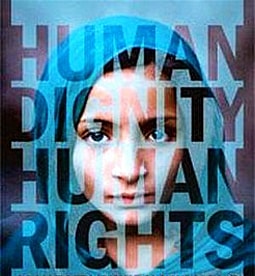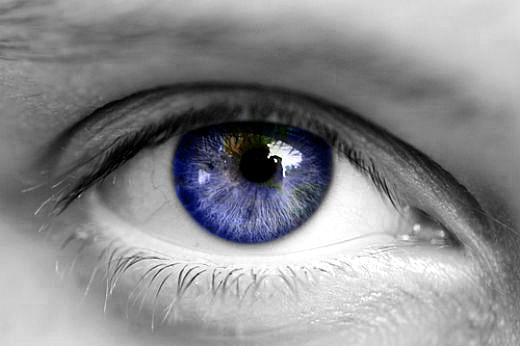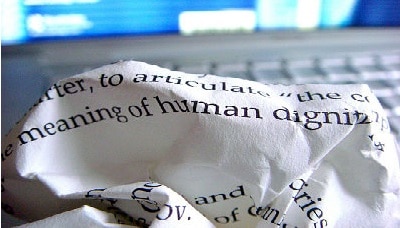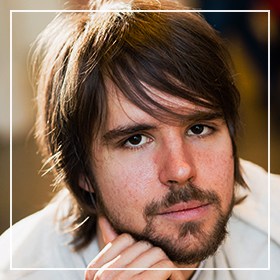Stephen Hopgood has recently argued in The Endtimes of Human Rights [i] that human rights discourse has fallen into decay – something that Costas Douzinas suggested already at the turn of the new millennium. [ii] While questions may be raised as to how accurate Hopgood’s analysis is exactly, there is no doubt that his book captures some concerns that must have crept into the minds of even the most devoted human rights believers in the last decade or so. Not only are the necessarily indeterminate human rights unable to fulfill their emancipatory potential when applied in complex situations in practice, but there is also nothing inherent in rights that would make them more useful for those trying to resist power, rather than for those in power. It is natural to wonder, at this moment of self-reflection and doubt, what lies in the future for the human rights movement, and human rights discourse in general.
Many have found the answer in the concept of human dignity, which is presented as the foundation and raison d´être of human rights – as something from which our rights derive from and that they are supposed to protect. While human dignity was mentioned already in the preambles of the key post-World War II international legal documents, references to the concept have become increasingly frequent and explicit in the international, regional and national realms more recently. The Universal Declaration on Bioethics and Human Rights is, for example, full of references to human dignity, the EU has in its most fundamental documents made it clear that it is built on the value of human dignity, the European Court of Human Rights has confirmed that the very essence of the European Convention is respect for human dignity and human freedom, and of the 36 constitutions that were adopted since 2000, only three make no reference at all to dignity, whereas the other 33 refer to it “emphatically and repeatedly”, according to Erin Daly. [iii]

Perhaps most importantly, the number of academic publications related to the concept of human dignity has skyrocketed, and the concept also features prominently in non-legal discourses, such as faith-based ethical discourse and bioethics.
While there are certainly many factors at play here, for me it seems that this peak in interest in the concept of human dignity is linked to a need to restore faith in the human rights movement and to find a cure both to the practical inadequacies and theoretical holes, pointed out in the deconstructive work of many critics, in the human rights system. In other words, there seems to be growing hope, or sometimes conviction, among scholars and practitioners alike that in human dignity can be found the solution to all these problems – that adequate understanding of human dignity is the missing piece in the jigsaw puzzle of human rights. I was, for example, last spring at an event where
Martin Scheinin emphasized that “human dignity is the end of human rights doctrine, and human rights are as close as you can get to that [ungraspable] end.”
Similarly, Catherine Dupré notes that, “[t]here is general agreement that dignity is both the foundation and the ultimate aim of human rights system”; [iv] Jürgen Habermas argues that human dignity provides the “moral ‘source’ from which all of the basic rights derive their meaning” [v]; Roberto Andorno states that “dignity is what provides the rationale to the requirement of respect for persons” [vi]; Bas de Gaay Fortman declares that“[h]uman dignity is the core value against which the exercise of any human right must be tested“ [vii]; and John Kleinig and Nicholas Evans write that:
human dignity is not simply another value – to be traded off against autonomy, utility, and the like – but possesses foundational significance. Human dignity, we suggest, grounds human rights. That is, it is by virtue of our status as beings with dignity that we possess and should be accorded what we denominate as basic human rights. [viii]
 This view has also been increasingly reflected in international politics and legal practice since the mid-1990s. The Vienna Declaration and Programme of Action, adopted by the UN World Conference on Human Rights, declares for example, in its preamble, that “all human rights derive from the dignity and worth inherent in the human person, and adds that the “human person is the central subject of human rights and fundamental freedoms.” Similarly, the explanatory note to the European Charter of Fundamental Rights states that human dignity is not only a fundamental right in itself, but also the foundational principle for all other fundamental rights, making it possible for Ari Kohen to note approvingly that “[i]t is obvious that the idea of human rights, as understood in contemporary international documents, is based on the inherent dignity of persons”. [ix]
This view has also been increasingly reflected in international politics and legal practice since the mid-1990s. The Vienna Declaration and Programme of Action, adopted by the UN World Conference on Human Rights, declares for example, in its preamble, that “all human rights derive from the dignity and worth inherent in the human person, and adds that the “human person is the central subject of human rights and fundamental freedoms.” Similarly, the explanatory note to the European Charter of Fundamental Rights states that human dignity is not only a fundamental right in itself, but also the foundational principle for all other fundamental rights, making it possible for Ari Kohen to note approvingly that “[i]t is obvious that the idea of human rights, as understood in contemporary international documents, is based on the inherent dignity of persons”. [ix]
The claim that human rights are founded on human dignity is made in several different ways, by different kinds of thinkers, and for different ends, and any generalizations should therefore be avoided.
Yet, what is important to note is exactly that, irrespective of whether human dignity is invoked because the author sincerely believes that there is some verifiable ‘thing’ called human dignity, or whether the author simply wants to take advantage of the energy invested in the concept, there is a wide consensus on, or at least promotion of, the idea that human rights derive from human dignity, which therefore forms some kind of transcendental raison d’être of human rights.
What this suggests is that at stake is the credibility, even existence, of the human rights system as a theoretical construction. Yet the increasing promotion of human dignity as the future of human rights discourse ought to raise some concerns in critical minds. Western power has always relied on some legitimating transcendental source of power – be it God, humanity, national spirit or Grundnorm – in the name of which everyday governance is exercised. Law and social practice are thus always divided, and practice is seen as inferior to the alleged transcendental righteousness in the name of which it operates. For example in medieval thought this division was addressed as the problem of being and praxis of God, and of providence, whereas in contemporary legal philosophy it is perhaps most commonly presented as the relation of constituent and constituted power. In this construction, simple decisions in the condition of indeterminacy, without any external higher element as a source of legitimacy and support, seem to be a reason for embarrassment. The fundamentally political, even violent, nature of law must be silenced – hence the constant attempt to presuppose, in Thanos Zartaloudis’s words, a mysterious center of power that ought to remain ungraspable, universal, transcendent and ineffable”. [x]
As the excerpts from the theoretical discourse around human rights and human dignity suggest, the human rights system has recently found its source of power in the concept of human dignity. Yet, this source of power is no less indeterminate than human rights are.
Whereas human rights are at least specified in list of rights – everyone has the right to life, freedom of expression etc – it is less clear what ‘human dignity’ would entail. It is therefore no wonder that the argument has been raised that human dignity is a hopelessly vacuous and empty concept – or the “shibboleth of all the perplexed and empty-headed moralists”, as the nineteenth-century philosopher Arthur Schopenhauer once said. [xi]
In 2002, the philosopher and bioethicist Ruth Macklin, for example, published an editorial in the British Medical Journal, titled ‘Human Dignity is a Useless Concept’, in which she argued that “appeals to dignity are either vague restatements of other, more precise notions or mere slogans that add nothing to the understanding of the topic.” [xii] In a similar vain, Bagaric and Allan state that “[a]s a legal or philosophical concept [dignity] is without bounds and ultimately is one incapable of explaining or justifying any narrower interests; it cannot do the work nonconsequentialist rights adherents demand of it [but is instead] a notion that is used by academics, judges, and legislators when rational justifications have been exhausted”. [xiii]
What is born therefore is – as was the case with Western theology, or constituted and constituent power – a “bipolar machine”, oscillating between everyday governance and practice, on the one hand, and the presupposed ungraspable source of this power, on the other. In the operation of this machine, governance and practice is legitimated by the presupposed source of power, whereas all that buzz of governance hides the fundamental emptiness of the source; the two poles are dependent on each other, reciprocally hiding each other’s emptiness. This oscillation and reciprocal concealing would not be possible, however, without all the discourse, rituals and hype around the empty center of power. Indeed, the more the concept of human dignity as the source of power and legitimacy of the human rights system is challenged, the more glorification is needed to uphold its credibility.
 The fundamental emptiness of this construction, where mystery is turned into practice and practice into mystery through the mediator of glory, should not however be taken to mean that the machine is irrelevant or without concrete results, as some of the critics cited above have argued. Not only does the oscillation generated by the machine function to hide the fundamentally political nature of the everyday decisions made within the system, but perhaps even more importantly, glory in this machine is not an ornament of power.
The fundamental emptiness of this construction, where mystery is turned into practice and practice into mystery through the mediator of glory, should not however be taken to mean that the machine is irrelevant or without concrete results, as some of the critics cited above have argued. Not only does the oscillation generated by the machine function to hide the fundamentally political nature of the everyday decisions made within the system, but perhaps even more importantly, glory in this machine is not an ornament of power.
Rather, as Zartaloudis emphasizes, glory produces power: [xiv] glorification creates all the floating energy that can be harnessed by decision-makers.
Empty of any specific content, seemingly neutral and non-political, and charged with energy, the concept of human dignity becomes therefore a powerful tool in the hands of decision-makers. Hence, while the reconstruction of the human rights system may serve to hide some of the theoretical patches of the old versions of the system, it is unlikely to solve those problems that make Hopgood and Douzinas most concerned.
References
[i] Stephen Hopgood, The Endtimes of Human Rights (Cornell University Press 2013).
[ii] Costas Douzinas, The End of Human Rights (Hart Publishing 2000).
[iii] Erin Daly, Dignity Rights: Courts, Constitutions, and the Worth of the Human Person (University of Pennsylvania Press 2013) 101, fn. 1 at 206.
[iv] C Dupre, Unlocking Human Dignity: Towards a Theory of the 21st Century (2009) 2 European Human Rights Law Review 190, 201.
[v] Jürgen Habermas, ‘The Concept of Human Dignity and the Realistic Utopia of Human Rights’ (2010) 41 Metaphilosophy 464, 466.
[vi] Roberto Andorno, ‘Human Dignity and Human Rights as a Common Ground for a Global Bioethics’ (2009) 34 Journal of Medicine & Philosophy 223, 230.
[vii] Bas de Gaay Fortman, ‘Equal Dignity in International Human Rights’, The Cambridge Handbook of Human Dignity: Interdisciplinary Perspectives (Cambridge University Press 2014) 356.
[viii] John Kleinig and Nicholas G Evans, ‘Human Flourishing, Human Dignity, and Human Rights’ (2013) 32 Law and Philosophy 539, 559–560; See alos generally George Kateb, Human Dignity (Belknap Press 2011).
[ix] Ari Kohen, ‘The Problem of Secular Sacredness: Ronald Dworkin, Michael Perry, and Human Rights Foundationalism’ (2006) 5 Journal of Human Rights 235, 252.
[x] Thanos Zartaloudis, Giorgio Agamben: Power, Law and the Uses of Criticism (Routledge 2011) 6; Giorgio Agamben, The kingdom and the glory: for a theological genealogy of economy and government / (Homo Sacer II, 2) (Lorenzo Chiesa and Matteo Mandarini trs, Stanford University Press 2011).
[xi] Arthur Schopenhauer, cited in Michael Rosen, Dignity: Its History and Meaning (Harvard University Press 2012) 1.
[xii] Ruth Macklin, ‘Dignity Is a Useless Concept’ (2003) 327 British Medical Journal 1419.
[xiii] Mirko Bagaric and James Allan, ‘The Vacuous Concept of Dignity’ (2006) 5 Journal of Human Rights 257, 260.
[xiv] Zartaloudis, ‘Giorgio Agamben’, 90.






